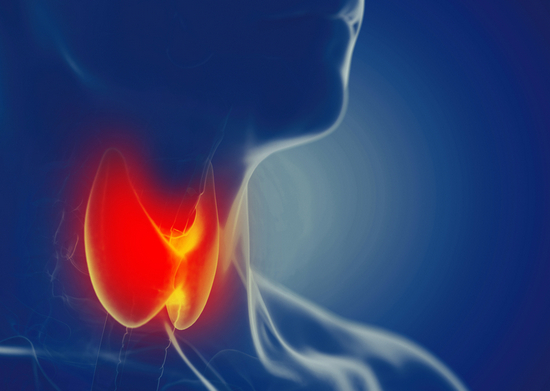“`html
Gluten is a topic that continues to receive significant interest. If you have a gluten-related condition, such as celiac disease, you understand the importance. But how does gluten relate to the thyroid’s well-being?
Individuals with celiac disease or a confirmed wheat allergy are at a higher risk of having a thyroid issue, particularly Hashimoto’s thyroiditis.
How does gluten influence your thyroid levels?
Before exploring the link between gluten and thyroid health, it’s crucial to grasp what gluten is and what thyroid levels signify.
This foundational understanding will clarify how gluten may impact your thyroid activity and levels.
What are thyroid levels?
Thyroid levels indicate the quantity of thyroid hormones present, with thyroid-stimulating hormone (TSH) levels reflecting the TSH concentration in your blood.
Thyroid gland
The thyroid gland, shaped like a butterfly and located at the base of your neck, releases hormones that regulate various bodily functions, including metabolism, cardiac activity, digestion, neurological growth, muscle movement, and bone strength.
The pituitary gland in your brain secretes TSH into the bloodstream to activate the thyroid, prompting it to generate thyroid hormones. Depending on whether there’s an excess or deficiency of these hormones in your body, the pituitary adjusts the TSH production accordingly. When certain hormone thresholds are reached, the production of TSH slows down.
If the thyroid malfunctions and produces an excess or insufficient amount of hormone, TSH levels can become misaligned. Low TSH might lead to conditions such as thyroid nodules or Graves’ disease, possibly resulting in hyperthyroidism, which affects about 1% of adults in the U.S. Conversely, high TSH levels might indicate more common issues such as Hashimoto’s thyroiditis.
What Is gluten?
Gluten is a type of protein found in cereals like rye, barley, and wheat. Many foods, including certain chips, candies, cereals, pastas, baked items, and some sauces, also contain gluten.

Gluten sources: wheat, barley, rye
Globally, about 1.4% of individuals have celiac disease, a serious autoimmune condition. Consumption of gluten by those with celiac disease, or those predisposed to it, can damage the lining of the small intestine. It’s also possible for individuals without celiac disease to develop it after consuming gluten.
How gluten impacts your thyroid levels
In cases of autoimmune disorders and celiac disease, the body’s immune system mistakenly identifies certain proteins and cells as threats, producing autoantibodies that attack these benign components. This erroneous attack can worsen the condition over time.
If diagnosed with celiac disease or a wheat allergy, there’s a high likelihood of having a thyroid disorder, particularly Hashimoto’s thyroiditis, which is marked by symptoms like severe fatigue, headaches, and digestive distress.
Additionally, a group of individuals experiences a condition called non-celiac gluten sensitivity (NCGS). A study from 2018 indicates a potential connection between NCGS and thyroid issues, with a strong correlation found specifically with Hashimoto’s thyroiditis. Both celiac disease and NCGS appear to correspond more frequently with elevated TSH levels and Hashimoto’s than with the lower TSH levels typically seen in Graves’ disease.
People suffering from leaky gut syndrome, a condition often responsible for autoimmune reactions, have bodies that react to gluten proteins as harmful invaders. They produce antibodies against gliadin, a key gluten protein, which closely resembles the transglutaminase enzyme in the thyroid gland. In a case of misidentification, these antibodies may end up targeting the thyroid enzyme rather than gliadin.
This immune system confusion can create a hormonal imbalance in the thyroid, leading to various complications. Individuals with celiac disease are at higher risk for thyroid imbalances due to the frequent occurrence of leaky gut syndrome. Similar autoimmune reactions involving gluten might also happen in Hashimoto’s thyroiditis and Graves’ disease.
Is a gluten-free diet crucial for protecting your thyroid health?
Determining the necessity of a gluten-free diet for improved thyroid health can be complex. It is essential to assess your individual health circumstances and make informed choices.

“Should I consider a gluten-free diet?”
If diagnosed with celiac disease or NCGS, adhering to a gluten-free diet is paramount for safeguarding your thyroid health.
“`
Your thyroid health can be influenced by various conditions such as diabetes, irritable bowel syndrome, or dermatitis herpetiformis. For some individuals with these issues, following a gluten-free diet might be beneficial, but this improvement may stem from other health benefits rather than directly protecting thyroid function.
In cases of the mentioned conditions, a gluten-free diet might lead to dietary habits that increase the intake of fats and carbohydrates, which can be detrimental to health if you are managing those conditions.
More people are leaning towards gluten-free diets today, so if you manage to limit your carbohydrate and fat intake, adopting a gluten-free approach could have positive effects on your health.
The relationship between gluten and thyroid health is intricate
There is still much to discover regarding the specific impact of gluten on thyroid health, indicating a need for further research in this area. However, for those with celiac disease or non-celiac gluten sensitivity (NCGS), abandoning gluten can enhance overall health and aid in intestinal recovery.
If you suspect that you have gluten sensitivity or thyroid issues, it’s advisable to speak with a healthcare professional before transitioning to a gluten-free diet. Sudden removal of gluten from your diet can lead to nutritional imbalances, so seeking guidance from a dietitian is recommended before making changes.
If you’re interested in exploring more of my work, feel free to click the links in my author bio below. For my articles on Chipur, just click on my name beneath my picture.
For articles by Bill on emotional and mental health topics and inspiration, check out all the titles or browse by category—scroll down if you’re on mobile, or use the right sidebar on a desktop.
Beth Rush and Bill White are not licensed medical professionals; the information provided is for educational purposes only. Always consult your physician for questions and personalized advice.

Beth serves as the mental health editor at Body+Mind. With over five years of experience in writing about behavioral health, particularly mindfulness-based cognitive therapy, she also explores how human design can help unlock our full potential and purpose. You can find her on X @bodymindmag.


